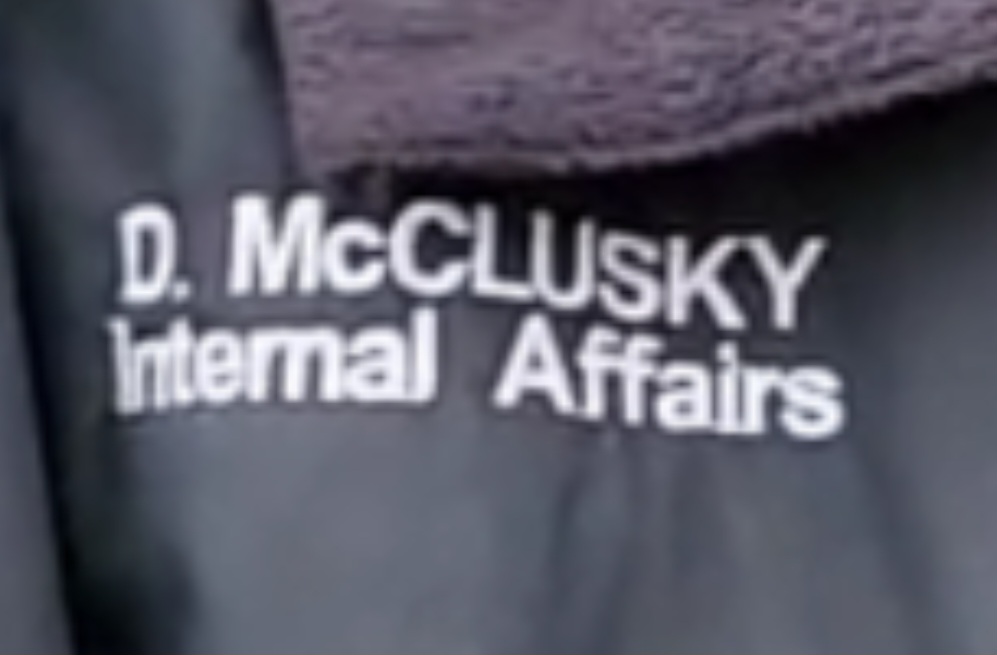Lake Co. Sheriff’s Internal Affairs Department Caught In The Act … but wait there’s more!

When there is an issue with an officer and you need to submit a complaint or you just need a public record, a reasonable person would think that going in and simply requesting the process for submitting that complaint or getting that public record would go without innocent. Simply in and out. Should take 10 minutes tops. That’s what our reporter thought on Friday January 27th, 2023 when he told his wife he would be right back out.
Our reporter can be seen entering the Lake County Sheriff’s Department in Crown Point, IN on video. He approaches the gentleman at the front desk and explains that he needs a FOIA request form or to know what the department’s process is for a public records request. He is met with confusions from the gentleman behind the desk. He did not understand what a “FOIA” or “Public Records” request was. Our reporter was initially told he would need to file a subpoena for the records.
When our reporter pushed further to ask if he could get someone else to help, the gentleman directed our reporter to the records department down the hallway. It can be seen in the video and heard in the audio the man asking our reporter to set his phone down and everything else in his pockets as he went through the scanner. You can see that our reporter placed the phone down so the screen showed that it was recording. At no point did our reporter hide the fact that he was recording his transaction with the department.
Our reporter gathered his things and walked down to the records department. He stated his request to the woman who came to the window and she went to get several other people. Among those other people was Stephanie the director or the records department. Stephanie stated that bodycam and dashcam footage are not public record. In regards to the legality of body worn cams and dash cams please refer to the following:
Indiana HB 1019 (2016) sets requirements for the public to request body camera recordings under the state’s open record laws. Requests must be in writing and must specify the date, location and approximate time of incident, and the name of at least one person, other than a law enforcement officer, who was directly involved in the law enforcement activity.
The law requires a public agency to permit certain persons, termed “requestors,” to view a recording at least twice. Requestors include anyone depicted in a recording, an owner of real property depicted in a recording, a crime victim or a person who suffers a loss due to personal injury or property damage. These individuals can be awarded attorney’s fees, court costs and other reasonable expenses if they prevail in an action against a public agency to view a recording. It also requires a public agency to permit all persons to inspect and copy a recording unless the public agency can demonstrate that release of the recording would: pose a significant risk of harm to a person or the public, interfere with a person’s ability to get a fair trial, will affect an ongoing investigation or will not serve the public interest. Provides that a recording that captures information relating to airport security may not be released for public inspection without the approval of the airport operator.
State agencies are also required to retain an unaltered, unobscured law enforcement recording for at least 280 days, localities are required to retain recordings for 190 days. If a “requestor” asks an agency for it to be held longer or if a formal or informal complaint is filed with the public agency regarding a law enforcement activity the public agency shall automatically retain the recording for at least two years. Recordings can be retained by police for training for any length of time, and if the recording is used in a criminal, civil, or administrative proceeding, the public agency shall retain the recording until final disposition of all appeals and order from the court. The law caps the fee for copying a law enforcement recording at $150. Specifies information that a public agency may or must obscure from a law enforcement recording before disclosing it. Exempts police recordings from the state’s prohibition against placing a camera on a person’s private property.
With that said I refer back to the statement I made when starting this article “When there is an issue with an officer and you need to submit a complaint or you just need a public record, a reasonable person would think that going in and simply requesting the process for submitting that complaint or getting that public record would go without innocent. Simply in and out. Should take 10 minutes tops”… Seems as if the Sheriff’s Department has a serious lack of training problems or a lack of transparency problem.
That was until our reporter was escorted out of the building for filming his transaction with public officials, which is widely held in this state to be a protected 1st amendment activity unless in a restricted non public area, as Indiana is a one party consent state.
As he was getting back in a car to leave it can be heard on camera a detective with the internal affairs department detaining him and demand that he get back inside.
When our reporter approached the IA Detective the detectives only concern was if our reporter was recording him outside the Sheriff’s Department on the public side walk. When our reporter confirms that he is recording the Detective from INTERNAL AFFAIRS Demands that he turn off the recording.
With an already scandal ridden agency with scandals and indictments reaching the top level with the Sheriff himself what are citizens of this county to do and expect from an agency that cannot be expected or trusted to police themselves.